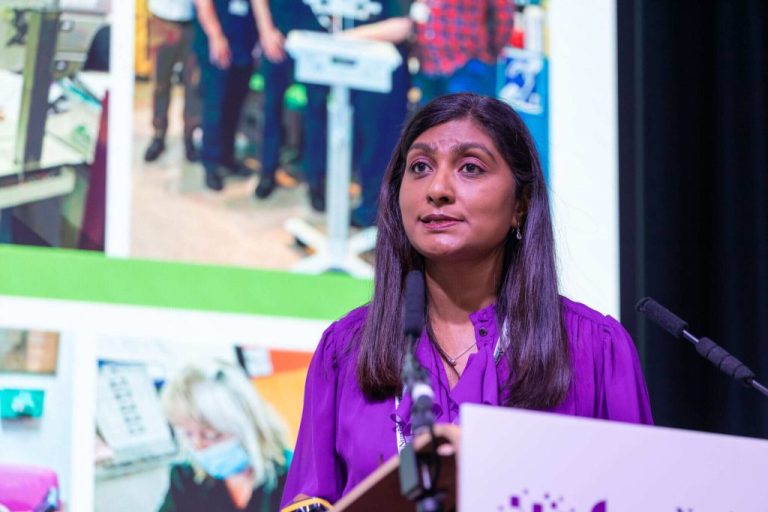Nurses, midwives and allied health professionals in Wales will be more involved in research in the future, according to new plans fielded by the Welsh Government.
Under the plan, which was commissioned by Welsh chief nursing officer (CNO) Sue Tranka and chief allied health professions advisor Ruth Crowder, the professions will be supported to focus more on research, in order to improve patient outcomes.
“This is a plan not just for research leaders, but for all who use, generate, or are inspired by evidence to improve care”
Sue Tranka
The plan recommended new minimum standards for content relating to research skills and service improvement at pre-registration level, a greater emphasis on these competencies in revalidation procedures and more time and resources allocated to continued professional development (CPD).
It also called for the creation of a “virtual research community of practice” for nurses, midwives and the 13 allied health professionals, which includes paramedics and physiotherapists.
This, the plan stated, would be “fully integrated with research infrastructure” in Wales and help promote collaboration and coordination between professionals looking to conduct research.
As well as this, the plan backed the strengthening of nurse, midwife and allied health professional research leadership in the devolved nation and for a “national blueprint” to improve the representation of these professions in research.
The plan, which Ms Tranka said was the first of its kind in the UK, was created through a long consultation with the professions, the PRIORITY project.
Ms Tranka said: “We are proud that our talented professionals have come together to lead the way in this respect.
“This is a plan not just for research leaders, but for all who use, generate or are inspired by evidence to improve care.
“We extend our sincere thanks to all those who contributed to the PRIORITY project.
“Your insights, experience and aspirations have shaped this plan, and your continued leadership will be essential in delivering it.”
Consultant dementia nurse Tracey Williamson, who works at Betsi Cadwaladr University Health Board in North Wales, said the plan would help support nursing, midwifery and allied health colleagues to increase their “confidence and ability” to conduct research.
“Current and future research leaders will be supported to strengthen their facilitation and leadership of research and ensure research focuses on what matters to patients and families,” she said.
“Nurses, midwives and allied health professionals are well-placed to strengthen patient and public involvement and engagement in research at every level.”
Meanwhile, Cwm Taf Morgannwg University Health Board executive nurse director Greg Dix said increasing the research capacity and capability of the professions would improve outcomes for patients.
Regina Reyes, a clinical research nurse based at Royal Gwent Hospital in Newport, also welcomed the publication of the plan.

Regina Reyes
“As an internationally educated nurse from the Philippines, I take great pride in being part of research,” she said.
She added: “Research is vital, and the role we play is crucial as we embed research into our day-to-day practice.”
Ms Reyes said she was pleased that internationally educated nurses like herself were consulted in the creation of the plan.
The action plan follows the publication of several other strategic healthcare plans in Wales this year.
In March, Health Education and Improvement Wales published the country’s first strategic nursing workforce plan, and in April the Welsh Government unveiled a new 10-year strategy for mental health and wellbeing.

Jeremy Miles
Jeremy Miles, Welsh cabinet secretary for health and social care, wrote in a foreword to the research plan that his government understood the importance of evidence-based care.
“Research is key in generating that evidence base, to drive improvements in health and social care services and to lay the foundations for better outcomes for patients, people and communities,” he said.
“Nurses, midwives and allied health professionals play a major role in achieving my goals to improve population health, caring for people across the lifespan; during illness and through to recovery and at the end of life, as well as through preventing illness, protecting health and promoting wellbeing.”
Mr Miles said the increased focus on research would help to improve recruitment and retention in the professions as well.
He added: “I look forward to seeing the community working together to implement this research action plan.”

